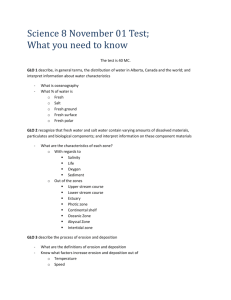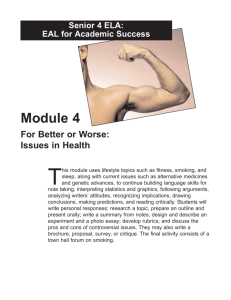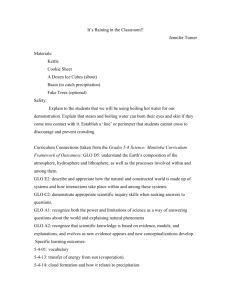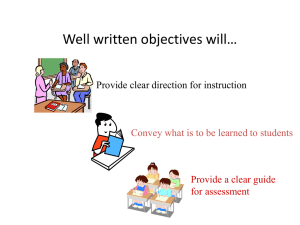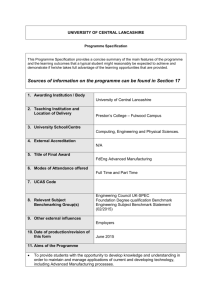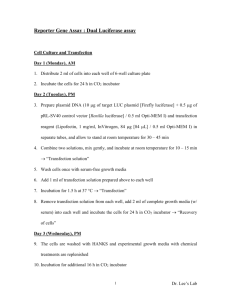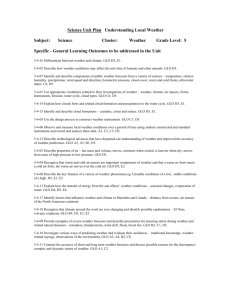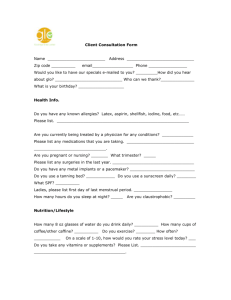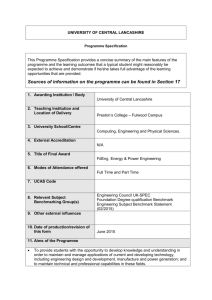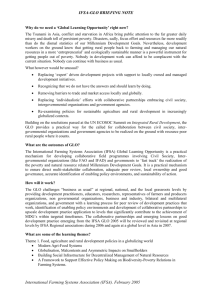Cooling Operation Troubleshooting
advertisement
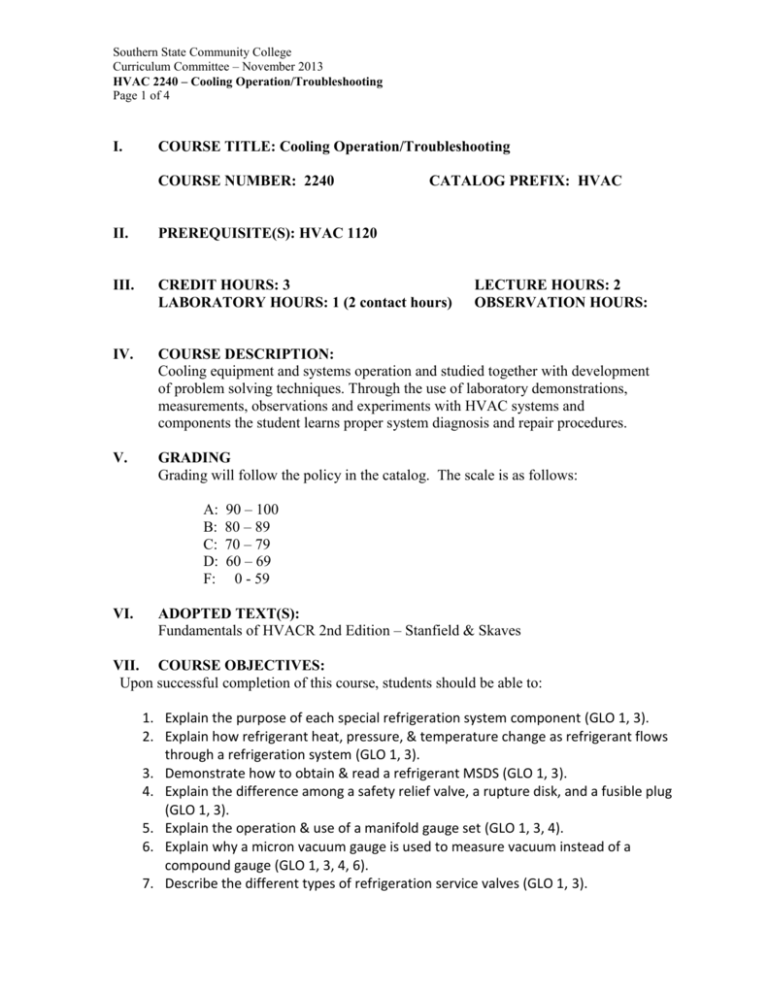
Southern State Community College Curriculum Committee – November 2013 HVAC 2240 – Cooling Operation/Troubleshooting Page 1 of 4 I. COURSE TITLE: Cooling Operation/Troubleshooting COURSE NUMBER: 2240 CATALOG PREFIX: HVAC II. PREREQUISITE(S): HVAC 1120 III. CREDIT HOURS: 3 LABORATORY HOURS: 1 (2 contact hours) IV. COURSE DESCRIPTION: Cooling equipment and systems operation and studied together with development of problem solving techniques. Through the use of laboratory demonstrations, measurements, observations and experiments with HVAC systems and components the student learns proper system diagnosis and repair procedures. V. GRADING Grading will follow the policy in the catalog. The scale is as follows: A: B: C: D: F: VI. LECTURE HOURS: 2 OBSERVATION HOURS: 90 – 100 80 – 89 70 – 79 60 – 69 0 - 59 ADOPTED TEXT(S): Fundamentals of HVACR 2nd Edition – Stanfield & Skaves VII. COURSE OBJECTIVES: Upon successful completion of this course, students should be able to: 1. Explain the purpose of each special refrigeration system component (GLO 1, 3). 2. Explain how refrigerant heat, pressure, & temperature change as refrigerant flows through a refrigeration system (GLO 1, 3). 3. Demonstrate how to obtain & read a refrigerant MSDS (GLO 1, 3). 4. Explain the difference among a safety relief valve, a rupture disk, and a fusible plug (GLO 1, 3). 5. Explain the operation & use of a manifold gauge set (GLO 1, 3, 4). 6. Explain why a micron vacuum gauge is used to measure vacuum instead of a compound gauge (GLO 1, 3, 4, 6). 7. Describe the different types of refrigeration service valves (GLO 1, 3). Southern State Community College Curriculum Committee – November 2013 HVAC 2240 – Cooling Operation/Troubleshooting Page 2 of 4 8. Describe how to gain access to systems without service valves (GLO 1, 3). 9. Discuss proper refrigerant-recover technique (GLO 1, 3). 10. List types of refrigerant leak detection (GLO 1, 3). 11. Explain how to determine the correct amount of charge for a split system (GLO 1, 2, 3, 4, 6). 12. Determine the correct superheat for a fixed-restriction air conditioning system using superheat charging chart (GLO 1, 2, 3, 6). 13. Troubleshoot air-conditioning system air-distribution problems (GLO 1, 2, 3,4). 14. Adjust air-conditioning system airflow (GLO 1, 3). 15. Troubleshoot air-conditioning system electrical problems (GLO 1, 3, 4). 16. Perform diagnostic tests on air-conditioning system electronic controls (GLO 1, 2, 3). 17. Troubleshoot air-conditioning system mechanical problems (GLO 1, 3, 4). 18. Explain the operation of the reversing valve (GLO 1, 3). 19. Explain the different types of efficiency ratings used for heat pumps (GLO 1, 3). 20. Describe the operation of heat pump defrost controls (GLO 1, 3). 21. Describe the operation of dual-fuel heat pump systems (GLO 1, 3). 22. Explain why some heat pump systems are better suited than others depending on the geographical location (GLO 1, 3, 6). 23. Diagnose the symptoms and the corrective actions for heat pump problems (GLO 1, 3, 4). 24. Discuss how to troubleshoot a heat pump reversing valve (GLO 1, 3, 4). 25. Explain the need for system cleanup after a compressor burnout (GLO 1, 3, 6). 26. Explain how to clean up a system after a compressor burnout (GLO 1, 3, 4). 27. Discuss common question customers ask service technicians (GLO 1, 3, 6). 28. Outline an electrical troubleshooting procedure that uses the process of elimination (GLO 1, 3, 4). 29. Discuss the use of common refrigeration system performance indicators in troubleshooting refrigeration problems (GLO 1, 3). VIII. COURSE METHODOLOGY: Method of Assessment Quizzes (GLO 1, 2, 3, 4, 6) Exams (GLO 1, 2, 3, 4, 6) Lab Reports (GLO 1, 2, 3, 4, 6) Comprehensive Final Exam (GLO 1, 2, 3, 4, 6) Professionalism (GLO 6) IX. COURSE OUTLINE: Week 1 Unit 20 Refrigeration accessories Percentage Value of Total Grade 15% 40% 20% 15% 10% Southern State Community College Curriculum Committee – November 2013 HVAC 2240 – Cooling Operation/Troubleshooting Page 3 of 4 2 3 4 5 6 7 8 9 10 11 12 13 14 15 16 Unit 21 Plotting the refrigeration cycle Unit 22 Refrigeration safety Unit 23 Refrigerant system servicing and testing equipment Exam Units 20-23; Unit 27 Accessing refrigeration systems Unit 28 Refrigerant management Unit 29 Leak testing Unit 31 Evacuation Exam Units 27-29 & 31; Unit 47 Troubleshooting Air Conditioning Unit 62 Types of heat pump systems Unit 63 Heat pump components Unit 64 Air source heat pumps Exam Units 47 & 62-64; Unit 66 Troubleshooting heat pumps Unit 91 Refrigerant system cleanup Unit 92 Troubleshooting systems Exam Units 66, 91, 92; Review Comprehensive Exam X. OTHER REQUIRED TEXTS, SOFTWARE, AND MATERIALS: Drafting set, consisting of: Compass, Dividers, flexible curve, a 45 and a (30/60/90) triangles, drafting scale, eraser, masking tape, scissors, small calculator, and mechanical pencil. XI. EVALUATION: Assignments will be evaluated according to instructor directives. Typically: The grade will be determined by periodic examinations, observation, a comprehensive final examination, homework, class participation, and the laboratory assignments and reports. It is suggested: Class Participation = 5% Assignments = 25% Examinations (4) = 40% Final Examination = 30% XII. SPECIFIC MANAGEMENT REQUIREMENTS: Students will be required to complete written exams at times designated in the Course Schedule. Students are required to participate in all class activities. XIII. OTHER INFORMATION: FERPA: Students need to understand that your work may be seen by others. Others may see your work when being distributed, during group project work, or if it is chosen for demonstration purposes. Students also need to know that there is a strong possibility that your work may be submitted to other entities for the purpose of plagiarism checks. Southern State Community College Curriculum Committee – November 2013 HVAC 2240 – Cooling Operation/Troubleshooting Page 4 of 4 DISABILITIES: Students with disabilities may contact the Disabilities Service Office, Central Campus, at 800-628-7722 or 937-393-3431.
